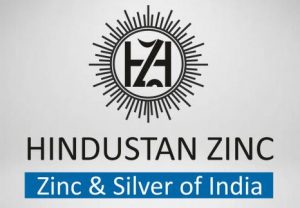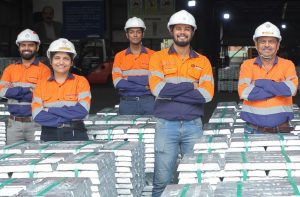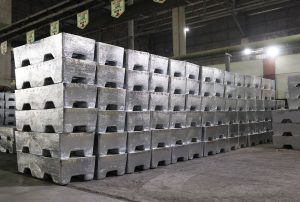Zinc-air batteries present a game-changing alternative for the EV sector. By offering a sustainable and locally sourced solution, they can reduce dependence on imported lithium-ion cells. Encouraging domestic innovation and scaling up production can position India as a global hub for zinc-based energy storage, enhancing competitiveness and self-reliance in the battery industry, says Arun Misra, CEO and Whole Time Director, Hindustan Zinc Limited in an interview with EVolution Auto India.

Q: What are the key advantages of zinc-based batteries over other batteries, particularly in the context of India’s climate and resource availability? Could you elaborate on the safety, cost-effectiveness, and environmental benefits?
Arun Misra: As the world transitions to sustainable energy solutions, the battery sector is witnessing rapid innovation. Zinc batteries have been around for nearly 200 years, commonly used in remotes and watches, but their potential extends far beyond. Unlike lithium-ion batteries, which pose fire hazards due to thermal runaway, zinc-based batteries have stable chemistries and are hence inherently safer, non-flammable, and more stable at high temperatures—making them ideal for India’s diverse climatic conditions.
Cost-effectiveness is another major advantage. Zinc is abundantly available in India, reducing dependence on expensive imported materials like lithium and cobalt from geo-politically volatile geographies. Additionally, zinc batteries are fully recyclable and have a significantly lower carbon footprint than conventional alternatives, aligning with India’s green energy goals. With their superior safety, affordability, and sustainability, zinc-based batteries hold immense promise for India’s evolving energy landscape.
Q: As the second-largest manufacturer of zinc in the world, how do you think India fares in terms of research and development on zinc-based battery solutions compared to some of the bigger economies?

Arun Misra: India, as the world’s second-largest zinc producer, is making significant strides in research and development of zinc-based battery technologies. Collaborations between industry leaders and premier research institutions are driving innovation in this space. At Hindustan Zinc, we have partnered with the Jawaharlal Nehru Centre for Advanced Scientific Research (JNCASR) and IIT Madras to develop next-generation zinc-based batteries. These collaborations focus on creating cost-effective, durable, and scalable alternatives to lithium-ion batteries.
Globally, countries like the United States are also investing heavily in zinc-based battery R&D. We have tied up with a leading US-based zinc battery manufacturer to explore cutting-edge zinc battery technologies which are already being used in various applications such as defence and data centres. By leveraging our substantial zinc production and fostering innovation, India is well-positioned to lead in sustainable energy storage solutions.
Q: Zinc is abundant in India. How does this domestic availability impact the cost and security of the zinc battery supply chain, and how does it compare to reliance on imported materials for other battery technologies?
Arun Misra: India’s abundant zinc reserves provide a significant strategic advantage in the global energy storage market. Utilizing domestically sourced zinc lowers production costs, strengthens the value chain, and insulates the industry from volatile international commodity prices and supply chain disruptions. In contrast, lithium-ion batteries rely on scarce and geopolitically sensitive raw materials, making them costlier and more vulnerable to global supply challenges.
A transition to zinc-based batteries would help India establish a more resilient and cost-efficient energy storage ecosystem as lithium is more than four times costlier than compared to zinc. Therefore it will reduce reliance on imports and decrease the carbon footprint associated with transporting materials from abroad.
Q: What are the most promising applications for zinc batteries in India, considering the country’s specific needs and challenges? How do you think the emerging EV sector would benefit from zinc-based batteries in terms of self-reliance and driving competitiveness with global markets?
Arun Misra: With the ongoing energy transition and India’s rapid switch to renewable energy, battery storage technology is in key focus to ensure solar power storage and availability through a 24-hour cycle. Zinc-based batteries have diverse applications, including grid storage, renewable energy integration, data centres, 5G network, defence, and electric mobility. Their long cycle life and stability in high temperatures make them particularly well-suited for India’s varied climate. For the EV sector, zinc-air batteries present a game-changing alternative. By offering a sustainable and locally sourced solution, they can reduce dependence on imported lithium-ion cells. Encouraging domestic innovation and scaling up production can position India as a global hub for zinc-based energy storage, enhancing competitiveness and self-reliance in the battery industry.
Q: How can zinc batteries contribute to India’s ambitious renewable energy targets and its transition to a cleaner, more sustainable energy future? Can you quantify their potential impact on reducing carbon emissions?

Arun Misra: According to BloombergNEF, the global energy storage market is projected to grow at an annual rate of 21 percent, reaching 442 GWh by 2030. Energy storage is critical for renewable energy adoption, as sources like solar and wind are intermittent. While lithium-ion batteries are currently dominant, zinc-based batteries offer a viable alternative by addressing storage challenges and ensuring grid stability.
Zinc is 100 percent recyclable and non-toxic, making it a more environmentally friendly choice than lithium, which has complex extraction and disposal challenges. Additionally, India is home to the world’s second-largest zinc producer which positions the country with a significant cost advantage in battery production. Studies indicate that zinc-air batteries can cut storage costs by up to 50 percent compared to lithium-ion alternatives, making renewable energy more accessible.
With India aiming for 500 GW of renewable energy capacity by 2030, integrating zinc batteries into the energy infrastructure can reduce dependence on fossil fuels, lower carbon emissions, and accelerate the transition to a sustainable future.
Q: What is the biggest roadblock for widespread and faster adoption of zinc-based batteries and large-scale manufacturing?
Arun Misra: The primary challenge is fine-tuning the technology, scaling it up and establishing a robust supply chain for zinc-based battery technologies. While R&D efforts are progressing, commercial deployment requires further investment in manufacturing infrastructure and policy support to incentivize adoption. Government incentives, industry partnerships, and continued technological advancements will be key to overcoming these challenges and ensuring large-scale adoption.
Q: Could you share some interesting breakthroughs we can expect in the next five years in the country, especially in the context of your partnerships with technical institutions like IIT?
Arun Misra: Significant breakthroughs in zinc-air, zinc-ion, and nickel-zinc battery technologies are expected over the next five years, driven by collaborations with research institutions like IIT Madras. Our ongoing projects focus on enhancing energy density, improving rechargeability, and optimizing cost efficiency. Research is also underway to modulate the structure and chemical compositions of alloys and electrolytes at the atomic/molecular level, addressing material challenges and improving overall battery performance. These advancements will make zinc-based batteries even more competitive with existing technologies.
Q: Would you like to share any additional information?
Arun Misra: India stands at the cusp of an energy revolution, and zinc-based batteries offer a viable, sustainable, and cost-effective solution to our storage needs. With the rapid expansion of the EV and renewable energy markets, driven by growing consumer adoption and government policies, investing in zinc battery R&D is a strategic necessity.To cater to the growing demand for sustainable energy storage solutions, Hindustan Zinc Limited (HZL) is actively investing in the research and commercialization of zinc-based battery technologies as an alternative to lithium-ion batteries.
As the world undergoes an energy transition, our metals, like Zinc and Silver, are expected to play a key role in this transition. By leveraging India’s abundant zinc resources, we aim to develop cost-effective, locally manufactured energy storage solutions, reducing dependency on imports and supporting the country’s fast-growing manufacturing, technology and auto sectors.